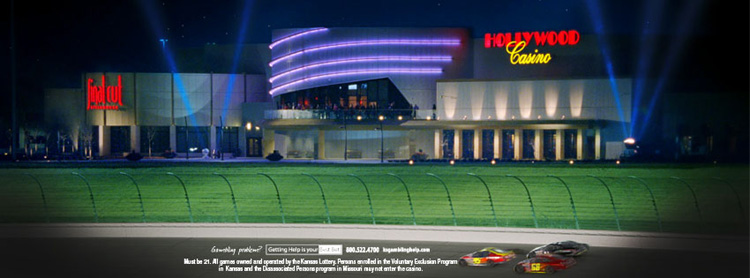In the hopes of reinvigorating the state’s economy, Kansas legislators are considering amending state gambling laws to provide greater financial incentive to developers who open gambling facilities featuring dog or horse racing.
On March 16, an informational hearing was held on the economic impact of reopening The Woodlands, a horse, and greyhound racing track in Kansas City which closed in 2008. Lobbyists at the House Appropriations Committee hearing declared the shifting of a greater percentage of revenue from the state to track operators perfectly legal, while attorneys for rival factions said revisions would be a breach of contract that could end up costing the state in excess of $100 million by refunding the fees paid by three casinos operating in the state. The competing interests said House Bill 2537 (pdf) would either destroy hundreds of existing jobs or generate 4,000 new jobs.
Lawmakers would have to revise the 2007 Kansas Expanded Lottery Act (pdf), which allows slots at racetracks or “racinos,” in order to reopen the tracks. One of the proposed changes would be lowering the tax rate from the 40 percent specified in the 2007 measure to 22 percent to help racetracks reopen. Topeka attorney John Frieden, who represents the Kansas Star Casino in Mulvane, within 20 miles of Wichita, said maneuvering around the state’s existing structure of casino gambling before 2032 could involve litigation seeking recovery of fees paid to the state by the casino as well as loss of anticipated profits. The Expanded Lottery Act prohibits the opening of competing gaming facilities in Sedgwick or Sumner counties until that time.
In May 2015, the Kansas Senate passed House Bill 2074 to allow 2,800 slot machines at a renovated or new racetrack in the northeast Kansas county. Two months later, billionaire Phil Ruffin, casino owner and former Wichita resident purchased The Woodlands racetrack with plans to reopen that track, as well as the currently defunct Wichita Greyhound Park in Park City and Camptown Greyhound Park in Frontenac, which he also owns. Ruffin worked diligently to try to get the slot machine bill passed when he purchased the Wichita Greyhound Park in 1997 so that he could take advantage of the lower tax rate. He wanted both tracks to offer racing and slot machines, but in 2007 after a ballot measure to allow slot machines at the track was rejected by voters he closed the track in Park City. Ruffin would need zoning approval as well as the revision in order to reopen The Woodlands.
Opponents of racing say casinos and community organizations within the state would be negatively impacted by the tax break, and none have objected more vehemently than a group calling itself Protect the Partnership run by the former mayor of Kansas City, Carol Marinovich. The group, which says it’s a coalition of local business and civic leaders, contends that contracts with the state held by current casino operators could be breached by a tax change for The Woodlands race track. Another opponent, Daniel Silva, executive director of the Kansas City Chamber of Commerce, said casinos such as the Hollywood Casino at Kansas Speedway in Kansas City, which have a competitive bid process that the lower tax rate doesn’t include, would be hurt by the proposed bill. Marinovich says the roughly $4 million in annual revenue generated by the Hollywood Casino contributes to community organizations. The Hollywood casino, which opposes The Woodland’s reopening, is operated by Penn National Gaming and owned by the state of Kansas. It is the second state-owned casino negotiated under the Expanded Lottery Act.
Whether or not legislation should be introduced is being considered by the House Committee on Commerce, Labor, and Economic Development.



